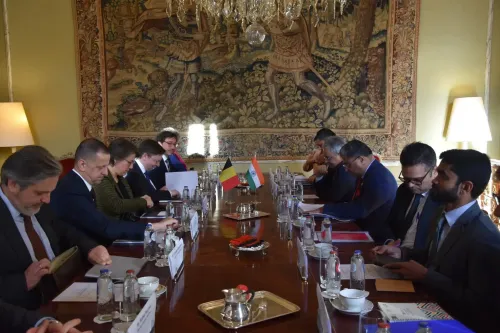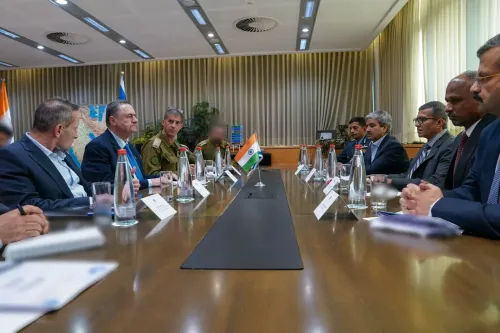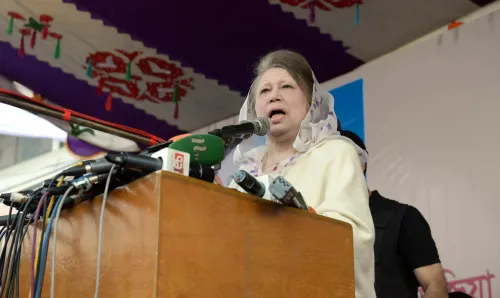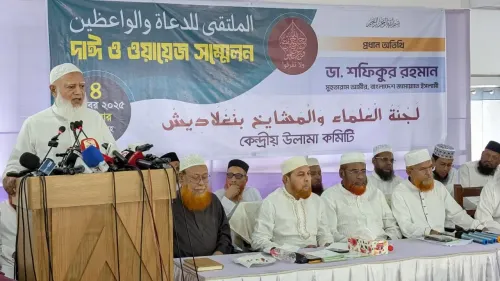Why Did India Reject EU's Criticism Over Its Involvement in the Russian-Belarusian Military Exercise?
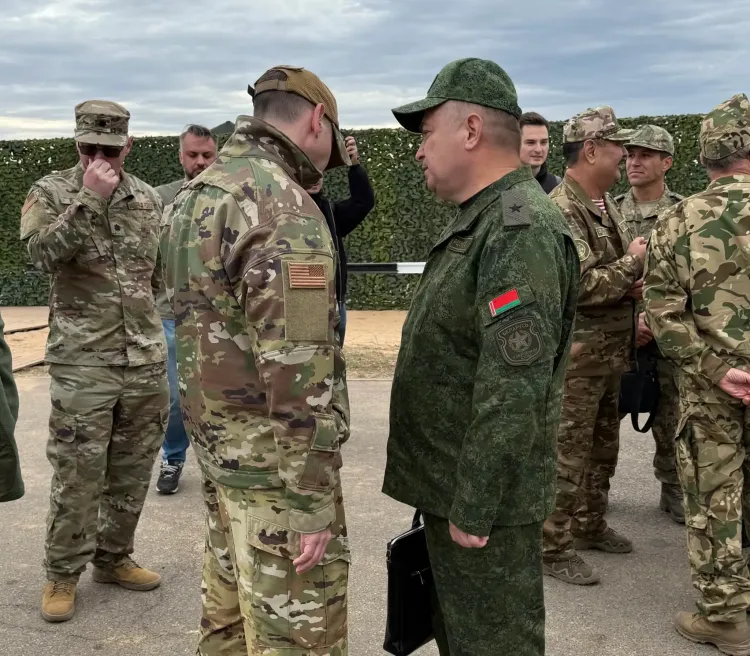
Synopsis
Key Takeaways
- India's participation in the Zapad exercise reflects a commitment to military collaboration.
- Multiple countries, including NATO members, also participated as observers.
- The exercise focuses on enhancing operational capabilities and integrating emerging technologies.
- India's Ministry of Defence has provided comprehensive details regarding its involvement.
- The geopolitical implications of such military exercises cannot be overlooked.
New Delhi, Sep 19 (NationPress) The Ministry of External Affairs (MEA) firmly dismissed the European Union's criticism regarding India's involvement in the multilateral Zapad exercise taking place in Russia's Nizhniy. On Friday, the MEA emphasized that various nations, including NATO members such as the United States, Turkey, and Hungary, also participated as observers in this significant exercise.
During a media briefing, MEA spokesperson Randhir Jaiswal responded to remarks made by European Commission Vice President Kaja Kallas, underscoring that the Ministry of Defence had already provided information about India's involvement in the Zapad exercise.
"I would like to highlight that various other nations, including NATO countries like the United States, Turkey, and Hungary, are participating or have participated in the exercise as observers," Jaiswal stated during the weekly briefing in New Delhi.
Kallas had expressed concerns regarding India's participation in the military exercise and its acquisition of Russian oil, suggesting it could obstruct negotiations for the India-European Union Free Trade Agreement (FTA).
"I am not speaking on behalf of India, so you can direct your inquiries to them. We plan to meet in person, as this is a significant concern for our countries. If you wish for closer ties with us, why engage in exercises that pose existential threats to us? Let me be clear; we do not take this lightly, but I will not divulge our discussions or speak on their behalf," Kallas remarked to reporters.
Previously, the Russian Foreign Ministry dismissed the West's apprehensions regarding India's participation in the military drills as "baseless".
Welcoming India's involvement, Russian Foreign Ministry spokesperson Maria Zakharova asserted that the Zapad 2025 exercises are "exclusively defensive" and intended to counter potential aggression.
"It is hoped that NATO observers will help dispel Western misconceptions regarding the drills' aggressive nature," Zakharova stated at a media briefing in Moscow.
The Zapad-2025 joint strategic exercise marks the culmination of joint training efforts between the Armed Forces of Russia and Belarus, taking place from September 12-16 across 41 land and sea training sites in both nations.
On September 9, a contingent of the Indian Armed Forces consisting of 65 personnel departed for Russia's Nizhniy to take part in the multilateral military exercise. The Ministry of Defence noted that the contingent included 57 members from the Indian Army, along with seven from the Indian Air Force and one from the Indian Navy. The Kumaon Regiment led the Indian Army contingent, which incorporated troops from various arms and services.
"The multilateral Exercise ZAPAD 2025 aims to strengthen military collaboration, enhance interoperability, and serve as a platform for participating armies to share tactics, techniques, and procedures in both conventional warfare and counter-terrorism operations.
"The exercise will emphasize joint company-level operations in open and flat terrains, where troops will engage in missions ranging from joint planning to tactical drills and specialized arms skills. It will provide a crucial opportunity to refine joint operational capabilities, integrate emerging technologies, and operate within a multinational combat environment," the ministry stated.

